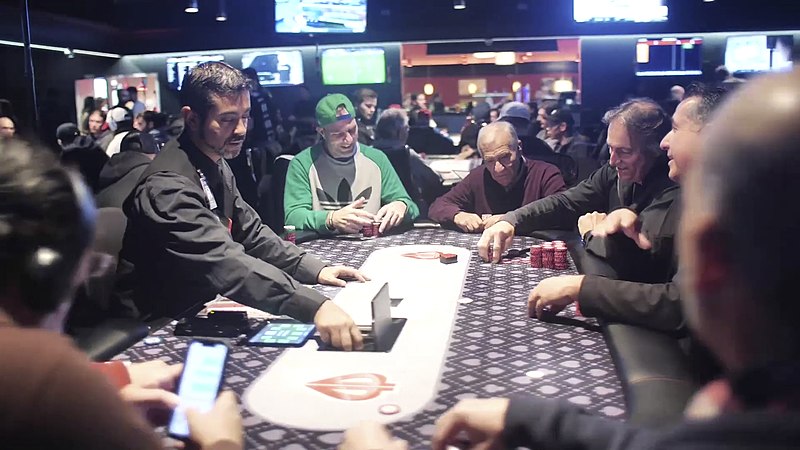What Is The Main Skill In Being A Great Poker Player

There are many skills that contribute to being a great poker player, but one of the most important is the ability to make good decisions based on incomplete information. Poker is a game of incomplete information, which means that players never know for certain what cards their opponents are holding. As a result, successful poker players must be able to make informed decisions based on the information available to them.
Here are some of the specific skills that contribute to making good decisions in poker:
Hand Reading: Great poker players are skilled at “reading” their opponents and understanding the range of hands they are likely to have based on their actions.
Positional Awareness: Understanding the importance of position and how to use it to your advantage is crucial in poker. Great players know which hands to play from which positions and how to manipulate their opponents based on their position.
Bankroll Management: Managing your bankroll effectively is crucial to long-term success in poker. Great players know how much they can afford to risk on each hand and how to minimize their losses during downswings.
Emotional Control: Staying calm and focused during the ups and downs of a poker game is crucial to making good decisions. Great players have a strong mental game and know how to avoid tilt (emotional reactions that can lead to bad decisions).
Adaptability: Successful poker players must be able to adapt their strategies to changing circumstances. This means being able to adjust to different opponents, game types, and playing styles.
Overall, the ability to make good decisions based on incomplete information is the main skill that contributes to being a great poker player. This skill requires a combination of strategy, psychology, and experience, and it is constantly evolving as the game of poker continues to change.
Is Poker Easy To Learn
The basic rules of poker are relatively easy to learn, but mastering the game can take a lot of time and effort. The basic goal of poker is to make the best possible five-card hand using a combination of two private cards (hole cards) and five community cards.
Learning the basic rules and hand rankings of poker is a straightforward process that can be accomplished relatively quickly. However, to become a proficient player, you must also learn about the different betting rounds, strategies for playing different hands, and how to read your opponents.
Poker is a complex game with many nuances and subtleties, and it can take years of practice to become a truly skilled player. That being said, with dedication and hard work, anyone can learn to play poker at a basic level and enjoy the game.
There are many resources available to help new players learn the game, including online tutorials, books, and training programs. Additionally, many casinos and online poker sites offer low-stakes games that are ideal for beginners who want to learn the game without risking too much money.
The Average Stakes Played In Poker In Las Vegas Casinos
The size of the stakes played in poker in Las Vegas casinos can vary widely depending on the specific game and casino. However, in general, the minimum buy-in for most low-limit games in Las Vegas casinos is $2 to $4, and the maximum buy-in can range from $200 to $1,000 or more.
The most commonly played poker games in Las Vegas casinos are No-Limit Texas Hold’em and Limit Texas Hold’em. In No-Limit Texas Hold’em, the blinds (forced bets made by the two players to the left of the dealer) can range from $1 to $10 or more, and the minimum bet is usually the size of the big blind. The maximum bet is typically limited by the amount of chips a player has on the table.
In Limit Texas Hold’em, the bets and raises are limited to specific amounts, which can range from $2 to $100 or more, depending on the specific game and casino. The blinds in Limit Texas Hold’em are also typically smaller than in No-Limit games, ranging from $1 to $4.
In general, the stakes in Las Vegas poker games can range from very low (a few cents per hand) to extremely high (tens or hundreds of thousands of dollars per hand). The specific size of the stakes played in any given game depends on the skill level of the players, the type of game being played, and the overall size of the pot.